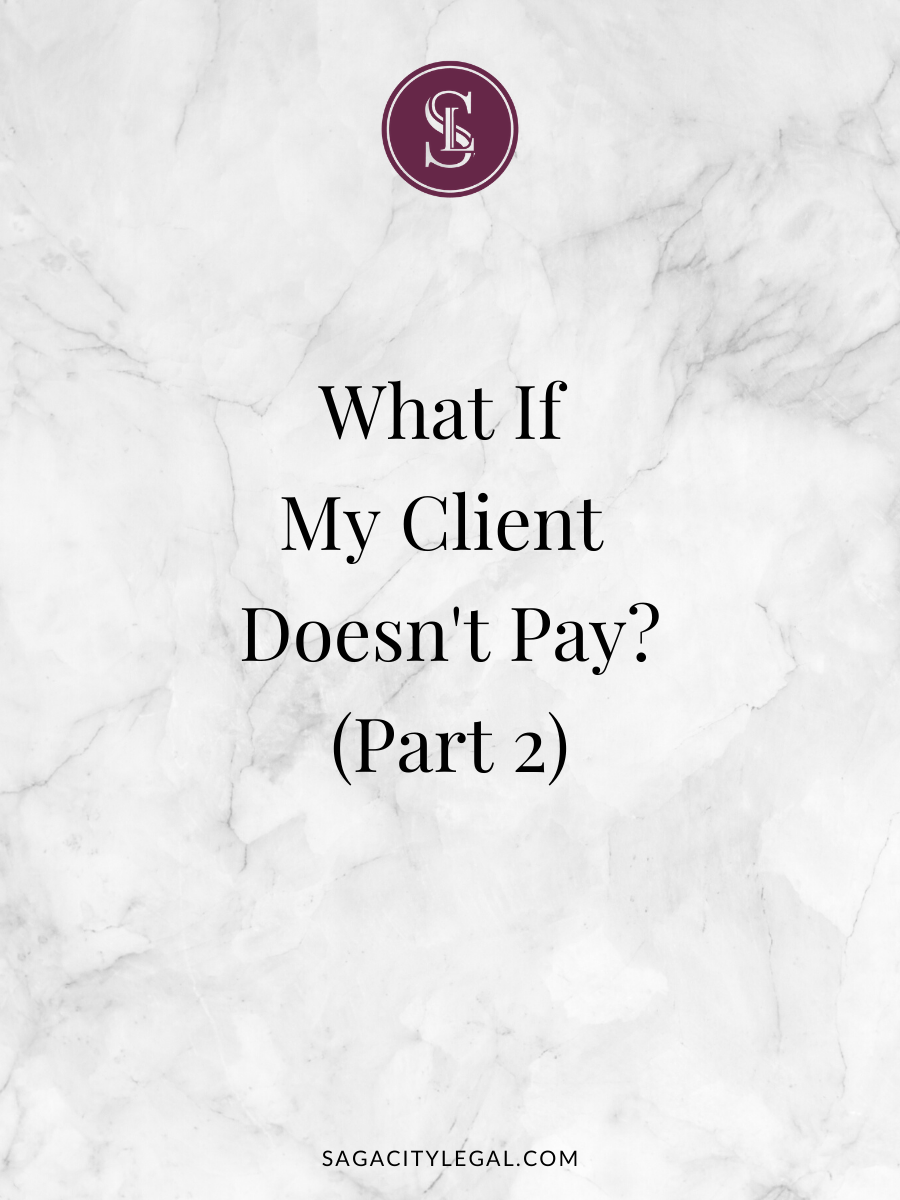
In Part 1 of What if My Client Doesn’t Pay, I talked about the protections you can put in place with a client contract to strengthen your Emotional Fortitude with your client relationship.
However, having a signed contract does not guarantee the client will pay. We are under the impression that we have control over our client’s actions, especially when they sign a contract. In actuality, the only thing we can control is our own thoughts, feelings, and actions. When a client doesn’t pay on time, all we can control is our own reactions.
In this Part 2, I’ll discuss how to strengthen your Legal Fortitude in the case that a client misses a payment. A strong legal fortitude provides you the confidence to see this otherwise disappointing situation in a brighter light.
Legal Fortitude
Step One: Overdue Invoice Reminder
Give your client the benefit of the doubt. Maybe they forgot. Perhaps they are waiting for their paycheck. Send a polite reminder that their invoice is overdue. In some cases, the client will pay and you’ll breathe a sigh of relief.
Step Two: Breach of Contract Notice Letter
If the client ignores your overdue invoice reminder, the next step is to put the client “on notice”. It’s honestly usually best to have the assistance of an attorney at this point. The key to a breach of contract notice letter is:
- Tell them they are considered in “breach of contract”
- Quote the related contract terms verbatim
- Include a deadline for payment plus any interest due
- Tell them that if not paid, you reserve the right to take legal action
In many cases, the client will pay when they receive the breach of contract notice letter. Note this is not a guarantee; but rather a low-cost potential method of causing the client to make the required payment.
Step Three: Disengagement Notice Letter
Whether or not your client pays when reminded (Step One) or put on legal notice (Step Two), you will need to make a decision whether you want to continue to work with this client in the future.
Ask yourself whether the negativity of waiting for payment is outweighed by the benefit of working with the client. Personally, I prefer positive, trustworthy clients. How about you?
If you decide it’s best to terminate the relationship, a disengagement or contract termination notice letter should be sent to the client.
The disengagement letter should clearly point out that you are terminating the relationship. Check the termination clause in your contract for guidance on how to terminate.
If the client still has not paid, include a restatement of the amounts due and legal ramifications in the disengagement letter.
I have found that if a client doesn’t pay in response to the breach of contract notice letter, they typically are not going to pay after the disengagement letter either. However, the letter protects you from future expected services being legally required; and makes it clear that the you have severed the business relationship.
Step Four: Collections Agencies
If your client still hasn’t paid, you have two options.
Your first option is to just write off the loss and chalk it up to “lessons learned” in business.
A second option is to hire a collections agency. Most collections agencies receive a percentage of what they are able to collect and you get the remainder.
Whether or not you take the client to collections depends on how you are feeling about the lost income vs. the emotional impact of further legal action. The choice is totally up to you.
End of Story
I have personally experienced clients that didn’t pay for services I provided; and I have also helped others collect payment from their customers. Whether we collected payment with a reminder, a breach of contract notice letter, a disengagement letter, or a collections action were completely unpredictable. It’s all dependent upon human behavior.
Clients not paying is one of the many risks you take as a small business owner. Choose your clients wisely, legally protect the relationship, and, when things go awry, know this is just a bump in the road, and you and your business will succeed!
Do you need help to build your emotional and legal fortitude with client contracts? If you are a Florida business, I can help. Contact me here.
Want to take the first step to legally securing your success? Get your Free Ebook today!




leave a comment on this post.